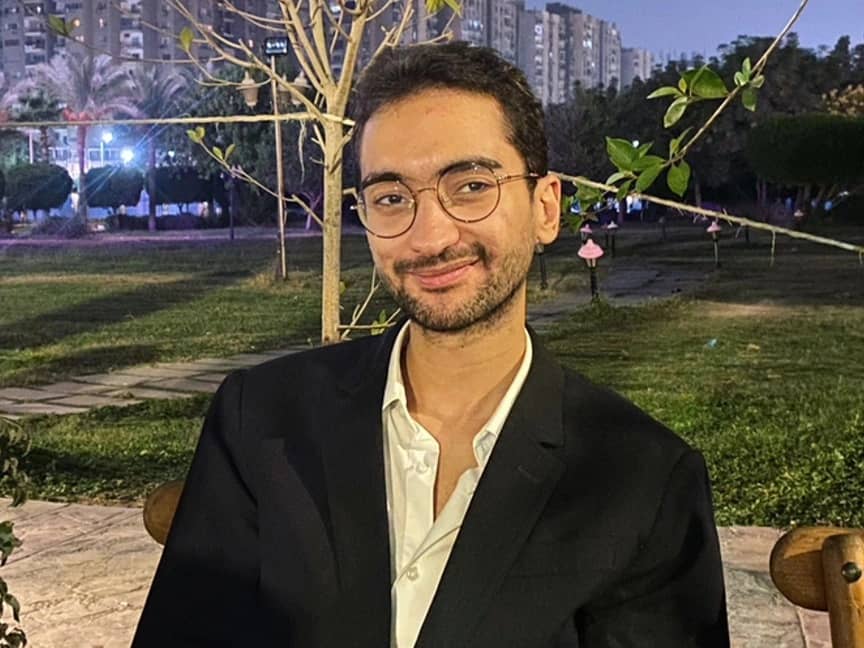위키 구독하기
Share wiki
Bookmark
Nour Haridy
0%
Nour Haridy
Nour Haridy는 탈중앙화 금융(DeFi) 도구를 제공하여 차입, 대출 및 합성 자산 생성을 목표로 하는 DAO인 Inverse Finance의 설립자입니다. [1]
교육
Haridy는 2017년에 United World College-USA를 졸업했습니다. [1]
경력
졸업 후 Haridy는 카이로에 기반을 둔 최초의 블록체인 연구소인 Lamarkaz를 공동 설립하여 2019년 7월까지 스마트 계약 개발자로 일했습니다. 이 기간 동안 그는 디지털 신원 관리 플랫폼인 Tykn B.V.의 수석 블록체인 개발자 및 버그 현상금 사냥꾼 플랫폼인 Bountyhive의 Web3 엔지니어로도 일했습니다. 2019년 9월에는 탈중앙화 개인 금융 도구를 사용하는 송금 앱인 Mosendo의 블록체인 설계자로 일했으며, 2020년에 Inverse Finance를 설립했습니다. [1]
Inverse Finance
2022년 1월, CRE8RDAO의 Fugu는 Haridy와 Inverse Finance 및 곧 출시될 INV+에 대해 인터뷰했습니다. 인터뷰 시작 시 그는 프로젝트 이름 뒤에 숨겨진 이유를 설명했습니다. [2]
“사실 제가 이름을 고르지 않았습니다. 당시 초기 제품인 DC Evolved가 출시되었습니다. 토큰도 없고, DAO도 없고, 매우 간단한 제품과 텔레그램 채널, 약 200명의 사람들만 있었습니다. 이름조차 없어서 제품이 아직 출시되지 않았습니다. 그냥 계약과 제가 만든 프론트 엔드였고, 라이브로 만들고 싶었습니다. 그래서 텔레그램에 있는 사람들에게 물어봤고, 온갖 다른 이름을 생각해 냈습니다. Inverse는, 제 생각에는, Inverse가 브랜드로서 주는 인상과 비슷하다고 생각합니다. 그리고 그것이 의도된 인상이기도 합니다. 우리가 가진 가치와 우리가 일을 하는 방식이 여러 면에서 현 상태와 거의 반대라는 것입니다.”
프로젝트가 비판을 받았는지 묻자 그는 다음과 같이 답했습니다. [2]
“재미있는 것은 대부분의 사람들이 우리가 일을 하는 방식을 비판하지 않을 것이라는 것입니다. 제가 이야기한 대부분의 사람들은 우리가 매우 지속 가능한 접근 방식을 취하고 있다는 데 동의할 것입니다. 그러나 특히 스테이블코인 분야에서 우리를 경쟁사와 비교하면 다른 프로젝트는 DOLA에 비해 안정성 공급을 몇 배나 늘렸습니다. 그들은 그것을 보면 DOLA가 프로젝트를 비판하는 많은 사람들에게 실패한 프로젝트처럼 보입니다.”
“사람들이 우리가 하는 일을 비판하는 것이 아닙니다. 우리가 내린 결정에 대한 세부 사항을 자세히 살펴보지 않고 DOLA를 보고 잘 진행되지 않는다고 판단할 것이라고 말할 수 있습니다. 하지만 사실 우리가 DOLA 유동성 보상에 지출하는 금액의 10배를 지출하자는 거버넌스 제안을 하는 것은 매우 쉽고, 이더리움의 현재 유동성은 단 하루 만에 1,500만 달러에서 1억 5천만 달러로 증가할 것입니다. 그래서 우리는 DOLA의 성장을 제한하기로 의도적으로 결정하고 있습니다.”
그는 또한 프로젝트의 스테이블코인인 DOLA에 대해 논의했습니다. [2]
“그래서 DOLA는 DAI와 같은 다른 스테이블코인뿐만 아니라 다른 부채 담보 스테이블코인과 비교해도 독특합니다. 그 이유는 Fed 계약이 우리에게 페그에 대한 엄청난 통제력과 보호 도구를 제공하기 때문입니다. 우리는 수요와 비교하여 공급 규칙을 제어할 수 있을 뿐만 아니라 모든 종류의 페그 보호 도구(예: 금리 또는 Maker 및 DOLA와 같은 PSM) 또는 모든 종류의 도구를 만들어 공급과 수요가 항상 동일하도록 할 수 있습니다. 현재 몇 가지 예에서 완전히 그렇지 않습니다. 공급은 현재 수요보다 몇 배나 더 많습니다. 아마도 약 10배 정도일 것입니다. Curve의 비율을 보면 실제로 10배입니다. 우리는 그런 일이 발생하는 것을 방지하고 발생하더라도 가능한 한 빨리 복구할 수 있는 최고의 도구를 가지고 있습니다.”
인터뷰가 끝날 무렵 그는 감시에 대한 자신의 견해를 밝혔습니다. [2]
“Inverse를 사용하는 데 상당한 위험이 있다고 생각하지만 다른 프로토콜보다 더 심각하다고 생각하지 않습니다. 똑같다고 생각합니다. 특히 감사 보고서를 게시, 광고 및 마케팅하는 프로토콜은 Inverse보다 더 위험합니다. 해킹된 프로토콜의 뉴스 리더보드에 가면 감사받지 않은 프로토콜보다 감사받은 프로토콜이 더 많다는 것을 알 수 있습니다. 우리는 Inverse에 대한 감사에 대해 많은 사용자로부터 질문을 받고 있으며, 감사받지 않았다는 사실 때문에 많은 사용자를 돌려보냈을 것이라고 확신합니다. 이는 또한 이러한 프로토콜이 해킹되기 전에 감사받지 않았다면 많은 사용자를 돌려보냈을 것임을 의미할 것입니다. 감사의 시스템적 위험과 도덕적 해이가 감사받지 않을 잠재적 위험보다 더 크다고 생각합니다.”
인터뷰/패널
Inverse AMA
Haridy는 탈중앙화 금융 상품 개발에 중점을 두고 2020년 12월에 출시된 DAO인 Inverse Finance에 대해 논의했습니다. 그는 다양한 자산에 수익을 재투자하는 DC Vaults와 DAI와 유사하지만 자본 효율성이 더 높은 과담보 스테이블코인인 DOLA의 두 가지 주요 제품을 강조했습니다. Haridy는 중앙 팀이나 법인이 없이 운영되고 거버넌스를 위해 다양한 위원회에 의존하는 Inverse Finance의 탈중앙화에 대한 약속을 강조했습니다. 그는 또한 혁신적인 결합 메커니즘과 스테이킹된 자산을 활용하여 DOLA의 시장 입지와 유동성을 개선하기 위해 Olympus DAO와의 협력에 대해 이야기했으며, Olympus DAO를 DOLA의 핵심 유동성 공급자로 자리매김했습니다. [3]
잘못된 내용이 있나요?
